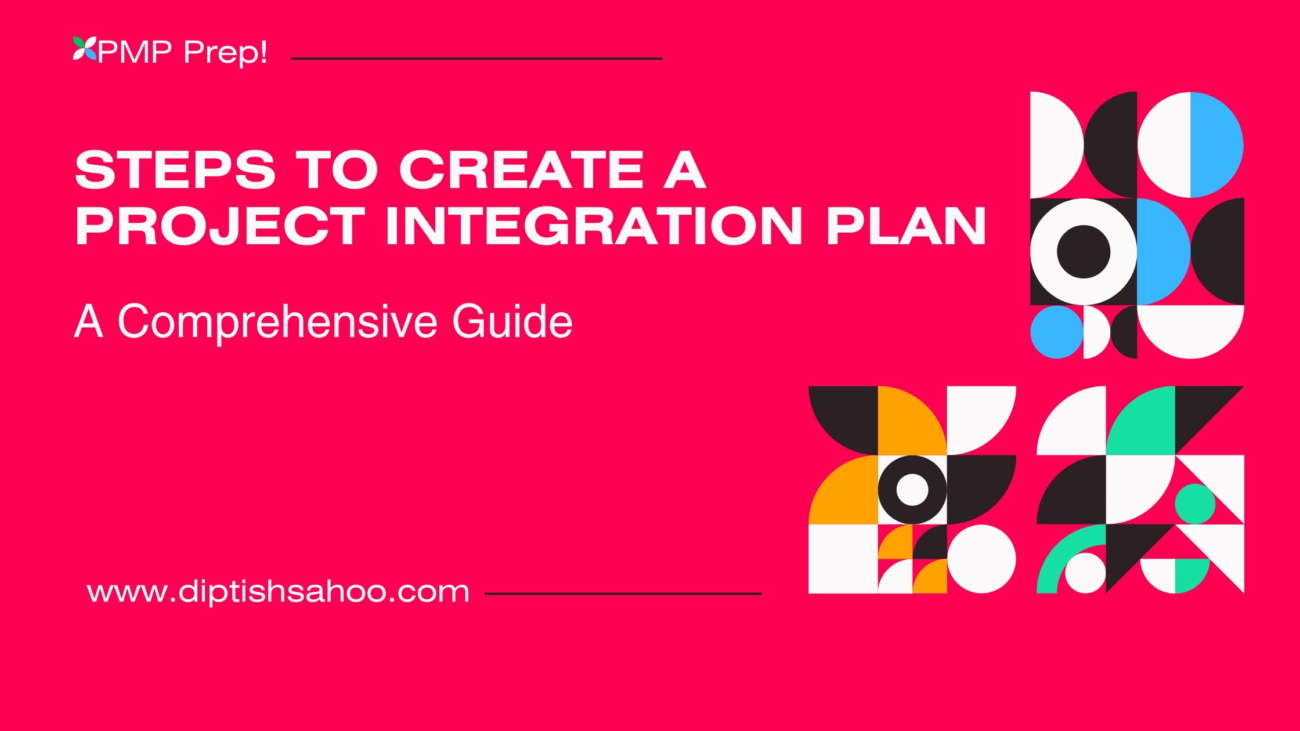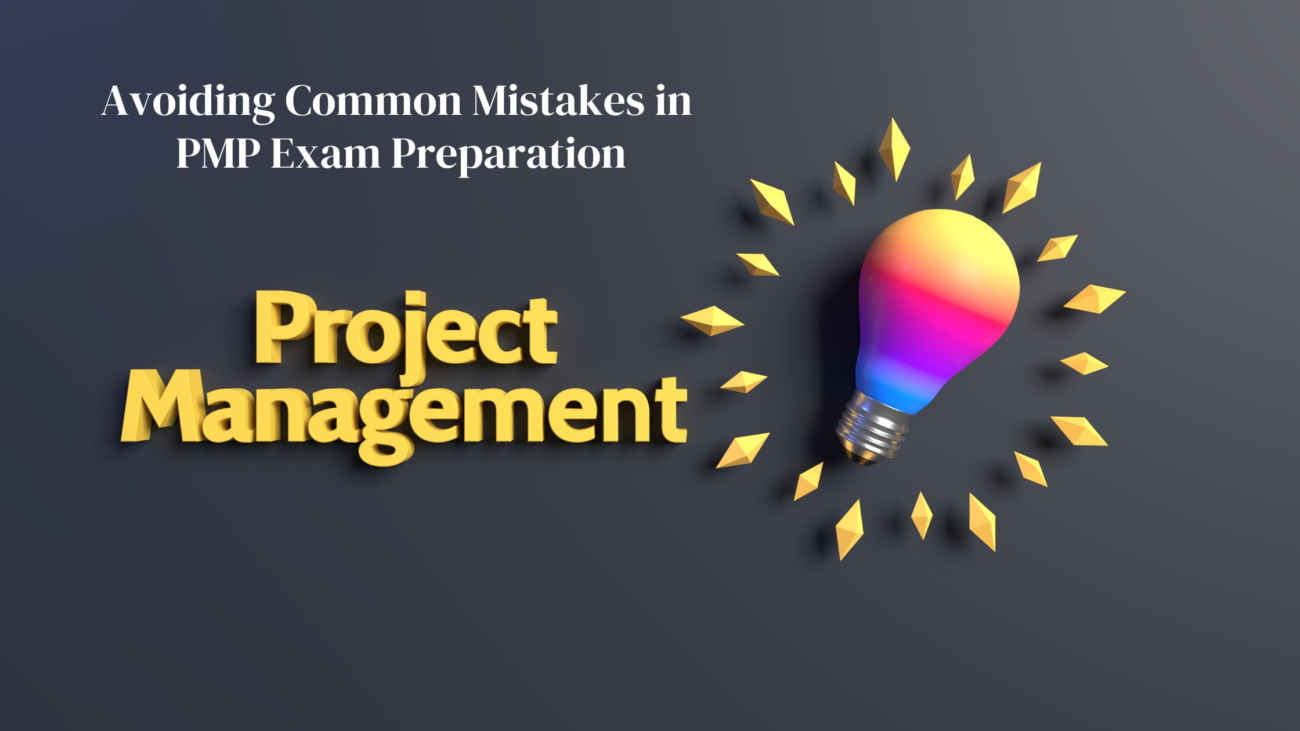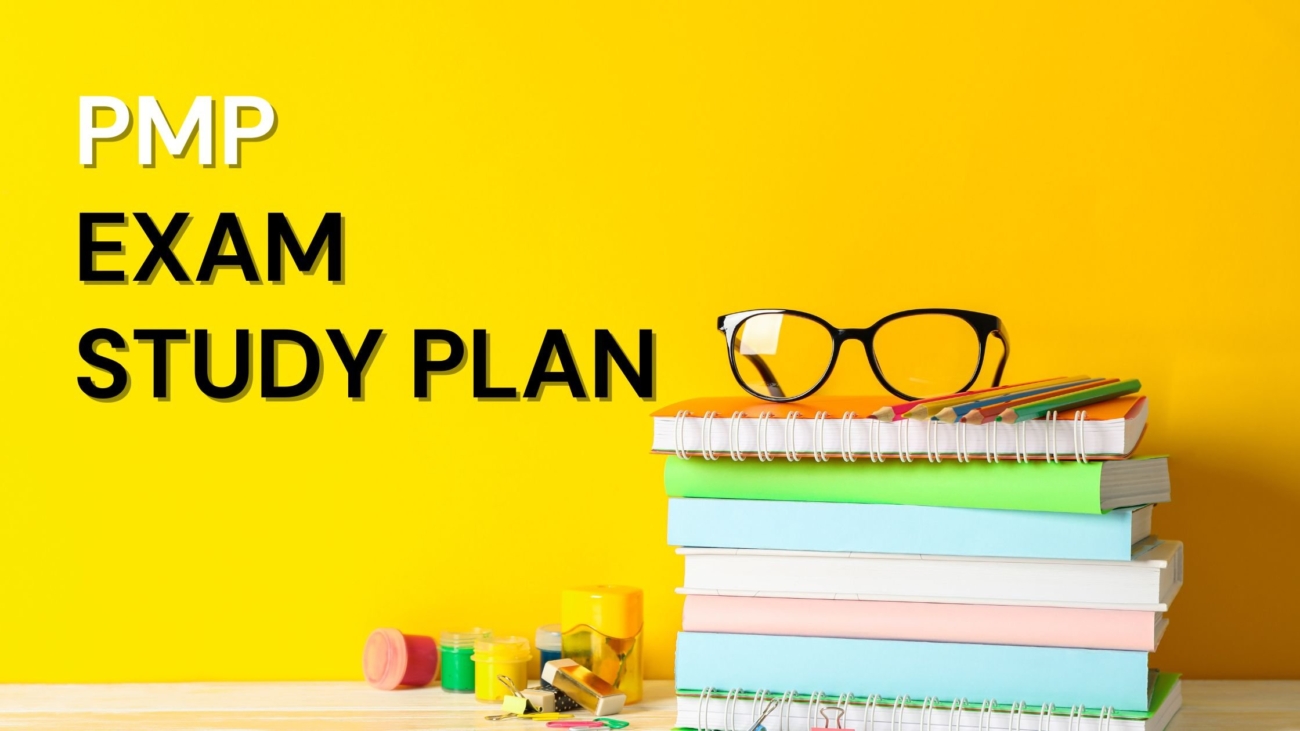Introduction
Embarking on the journey to attain your Project Management Professional (PMP) certification signifies a commitment to excellence in project management. The PMP exam study plan is a comprehensive assessment, and a well-structured study plan is your key to success in conquering this challenging examination.
Understanding the PMP Exam
The PMP exam is a benchmark for project management professionals, assessing their knowledge across various domains. Understanding the structure of the exam and the key knowledge areas it covers is fundamental to preparing effectively. The exam is divided into five domains: Initiating, Planning, Executing, Monitoring and Controlling, and Closing. Each domain encompasses specific tasks and skills required for effective project management.
Importance of a PMP Exam Study Plan
While the prospect of earning a PMP certification is exciting, a systematic study plan is crucial for navigating the extensive and diverse content of the exam. A well-thought-out study plan acts as a roadmap, guiding you through the complexities of project management knowledge. It ensures that you cover all essential topics, allocate sufficient time to each area, and are adequately prepared for the exam day.
Elements of an Effective PMP Exam Study Plan
Setting realistic goals is the cornerstone of an effective study plan. Break down the vast syllabus into manageable sections, allocate dedicated time for each knowledge area, and integrate regular practice exams to gauge your progress and boost your confidence. Your study plan should include:
Goal Setting
Define clear and achievable goals for your PMP exam preparation. These goals can be based on the number of study hours per week, completion of specific chapters, or achieving a certain score in practice exams.
Time Management
Allocate specific time slots for your study sessions. Consider your daily commitments and create a realistic schedule. Consistency is key, so find a study routine that works for you and stick to it.
Practice Exams
Regularly incorporate practice exams into your study plan. These exams simulate the actual testing environment, helping you familiarize yourself with the format and assess your readiness. Analyze your performance in each practice exam to identify areas for improvement.
Review and Adjust
Periodically review your study plan and make adjustments as needed. If you find that a particular topic requires more attention, allocate additional study time to it. Flexibility is essential to adapt to your evolving understanding and needs.
PMP Exam Training Materials
Selecting reliable study materials is pivotal for success. Identify reputable PMP exam training materials, including textbooks, online courses, and video lectures that align with the exam content outline. Here are some recommended resources:
PMI’s Guide to the Project Management Body of Knowledge (PMBOK Guide)
The PMBOK Guide is the primary reference for the PMP exam. It provides a comprehensive overview of project management principles and practices. Ensure you have the latest edition to stay current with exam requirements.
Online Courses
Explore online courses from reputable providers such as Udemy, Coursera, and LinkedIn Learning. These courses often include video lectures, practice quizzes, and interactive content to enhance your understanding.
Practice Exams
Invest in practice exam resources from reliable providers. Platforms like PMTraining, PrepCast, and Exam Simulator offer realistic practice exams with detailed explanations for each question.
Study Groups
Joining a study group or online forums can provide valuable insights and support. Discussing concepts with peers, sharing experiences, and seeking clarification on challenging topics can enhance your preparation.
Practical Project Management Exam Preparation
While theoretical knowledge is essential, practical application is equally crucial. Implement strategies for hands-on learning, applying project management concepts to real-world scenarios for a deeper understanding. Here are some practical tips:
Case Studies
Review real-world case studies to understand how project management principles are applied in different industries. Analyze the challenges faced, the strategies employed, and the outcomes achieved.
Simulations
Engage in project management simulations that replicate common scenarios. Simulations allow you to make decisions, manage resources, and navigate challenges in a risk-free environment, enhancing your decision-making skills.
Workplace Application
Apply project management concepts to your current or past work projects. This practical application reinforces your understanding and demonstrates the real-world relevance of PMP knowledge.
Career Advancement Through PMP Certification
Beyond passing the exam, earning your PMP certification positions you for career advancement. Employers recognize and value certified project managers, opening up new and exciting opportunities in your professional journey. Here’s how PMP certification can boost your career:
Credibility and Recognition
PMP certification is globally recognized and demonstrates your commitment to excellence in project management. It enhances your professional credibility and distinguishes you as a knowledgeable and skilled project manager.
Career Opportunities
Certified PMP professionals are sought after by organizations across industries. The certification opens doors to new career opportunities, promotions, and leadership roles.
Salary Advancement
PMP certification is often associated with higher earning potential. According to the Project Management Salary Survey, PMP-certified professionals earn higher salaries on average than their non-certified counterparts.
Professional Network
Joining the community of PMP-certified professionals provides networking opportunities. Connect with like-minded individuals, attend industry events, and stay updated on the latest trends and best practices in project management.
Strategies for Success in Project Management Exams
Success in project management exams requires strategic preparation. Adopt efficient study strategies, avoid common challenges, and stay consistent in your approach to ensure success in the PMP exam. Consider the following strategies:
Familiarize yourself with the PMP exam format, including the number of questions, time limits, and question types. Understanding the exam structure helps you manage your time effectively during the actual test.
Focus on Weak Areas
Identify your weak areas through practice exams and focus additional attention on those topics. Strengthening your understanding of challenging concepts improves your overall readiness for the exam.
Use Mnemonics and Memory Aids
Project management involves remembering numerous processes, knowledge areas, and ITTOs. Create mnemonics or memory aids to help recall key information during the exam.
Stay Consistent
Consistency is key to success. Create a study schedule that aligns with your daily routine and stick to it. Regular, focused study sessions are more effective than sporadic, intense cramping.
Take Breaks
Include breaks in your study sessions to avoid burnout. Short breaks between study sessions help maintain focus and prevent fatigue.
Online Project Management Practice Exams
Online platforms offer a plethora of practice exams tailored to the PMP exam. Choose reputable platforms that provide realistic exam simulations, detailed feedback, and a comprehensive understanding of the exam format. Here are some recommended online platforms:
You can check with KnowledgeHut for comprehensive training material, including 8 Mock Test Papers and 8 Mock Simulation Tests, which will be adequate to prepare for your upcoming test.
Overcoming Challenges in PMP Exam Preparation
Perplexity and uncertainty are common challenges during PMP exam preparation. Address these challenges by breaking down complex topics, seeking clarification from study groups, and leveraging online forums for support. Consider the following strategies to overcome challenges:
Break Down Complex Topics
If you encounter a particularly challenging topic, break it down into smaller, more manageable parts. Understand the foundational concepts before delving into intricate details.
Join Study Groups
Joining a PMP study group or online forum provides a supportive community. Discussing concepts with peers, sharing experiences, and seeking advice can help clarify doubts and boost your confidence.
Join my LinkedIn study group here PMP Exam Prep/Study Group
Leverage Online Resources
Take advantage of online resources such as webinars, tutorials, and discussion forums. Many experienced PMP professionals share their insights and tips for overcoming challenges in exam preparation.
Practice Mindfulness
Stay focused and present during your study sessions. Mindfulness techniques, such as deep breathing or short meditation breaks, can help alleviate stress and enhance your concentration.
Optimizing Study Sessions with Burstiness
Optimize your study sessions with burstiness—short, focused periods of intense learning. Incorporate breaks to maintain focus and prevent burnout, maximizing productivity in your study sessions. Consider the following tips:
Set Clear Goals for Each Session
Before each study session, define specific goals or topics to cover. Having a clear agenda helps you stay focused and make the most of the burstiness approach.
Mix Topics Strategically
Vary the topics you study within each burst. This keeps the sessions dynamic and prevents monotony, enhancing your overall engagement and retention of information.
Incorporate Short Breaks
Include short breaks between study sessions. Whether it’s a quick walk, stretching, or a brief relaxation exercise, breaks contribute to maintaining focus and preventing mental fatigue.
Engaging Study Techniques for PMP Success
Active learning methods, such as group discussions and practical applications, enhance the effectiveness of your study sessions. Apply project management concepts to real-world scenarios to deepen your understanding and retention. Consider the following engaging study techniques:
Group Discussions
Participate in group discussions with fellow PMP aspirants. Explaining concepts to others and hearing different perspectives can reinforce your understanding and highlight areas for improvement.
Practical Applications
Apply project management concepts to real-world scenarios. Take examples from your work or create hypothetical situations to practice applying theoretical knowledge in practical contexts.
Explore interactive learning tools that simulate project management scenarios. These tools often provide a hands-on approach to understanding complex concepts and improve your decision-making skills.
Conversational Learning Approach
Demystify complex concepts by adopting a conversational learning approach. Explain project management concepts in everyday language and engage in discussions through study groups or forums to reinforce your understanding. Consider the following strategies:
Teach Concepts to Others
Teaching is an effective way to reinforce your understanding of a topic. Explain project management concepts to friends, family, or study group members in simple, everyday language.
Participate in Study Groups
Join or form study groups where you can engage in discussions about project management concepts. Hearing different perspectives and explanations can deepen your understanding.
Utilize Online Forums
Explore online forums dedicated to PMP exam preparation. Participate in discussions, ask questions, and share your insights. The conversational nature of forums provides valuable insights and clarifications.
Enhance your understanding of project management concepts by using analogies and metaphors. Relate abstract concepts to real-life situations for better comprehension and retention. Consider the following examples:
Project Management as a Symphony
Think of project management as orchestrating a symphony of tasks. Each instrument represents a different aspect of project management, and the conductor ensures harmony and coordination.
Critical Path as a Main Highway
Consider the critical path in project management as the main highway. Just as traffic flows efficiently on the main highway, project tasks move smoothly along the critical path to ensure timely project completion.
Scope Creep as a Garden Overgrowth
Imagine project scope creep as the overgrowth of a garden. If left unchecked, additional features and changes can overtake the initial project scope, requiring careful pruning and maintenance.
Conclusion
In your pursuit of conquering the PMP exam, a well-crafted study plan, reliable training materials, and effective study strategies are your allies. Embrace the challenges, celebrate your victories, and remember that success in the PMP exam is a journey, not just a destination.
Frequently Asked Questions
- What is the recommended duration for a PMP exam study plan?
- On average, professionals spend 2-3 months in intensive preparation for the PMP exam.
- Can online project management courses alone suffice for PMP preparation?
- Yes, reputable online courses aligned with the PMP exam content can be highly effective for preparation.
- How frequently should practice exams be taken during PMP preparation?
- It’s recommended to take practice exams weekly to track progress and identify areas for improvement.
- What are common challenges to avoid during PMP exam preparation?
- Common pitfalls include procrastination, cramming, and neglecting practice exams. Staying organized and consistent is key.
- Is the burstiness approach suitable for everyone’s study sessions?
- Yes, adapting study sessions to short, focused bursts is beneficial for most learners, but it’s important to tailor it to personal preferences.












